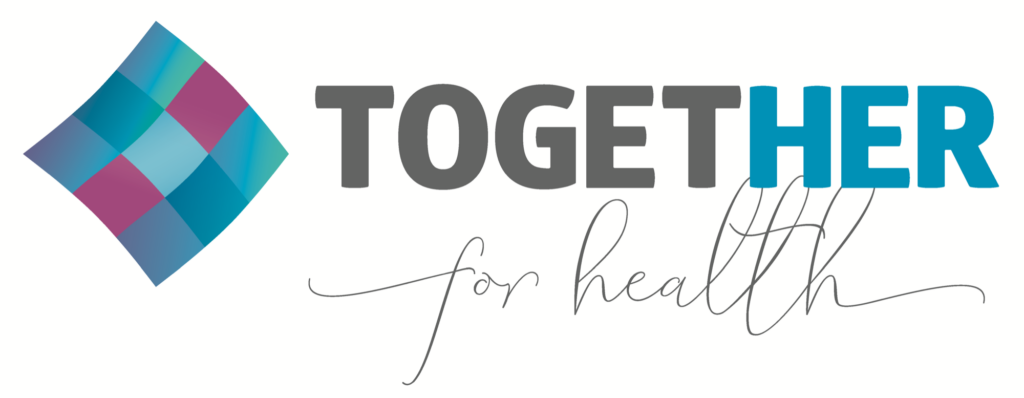The TogetHER Interview Revisited: Anielka Medina, Lily Project Executive Director
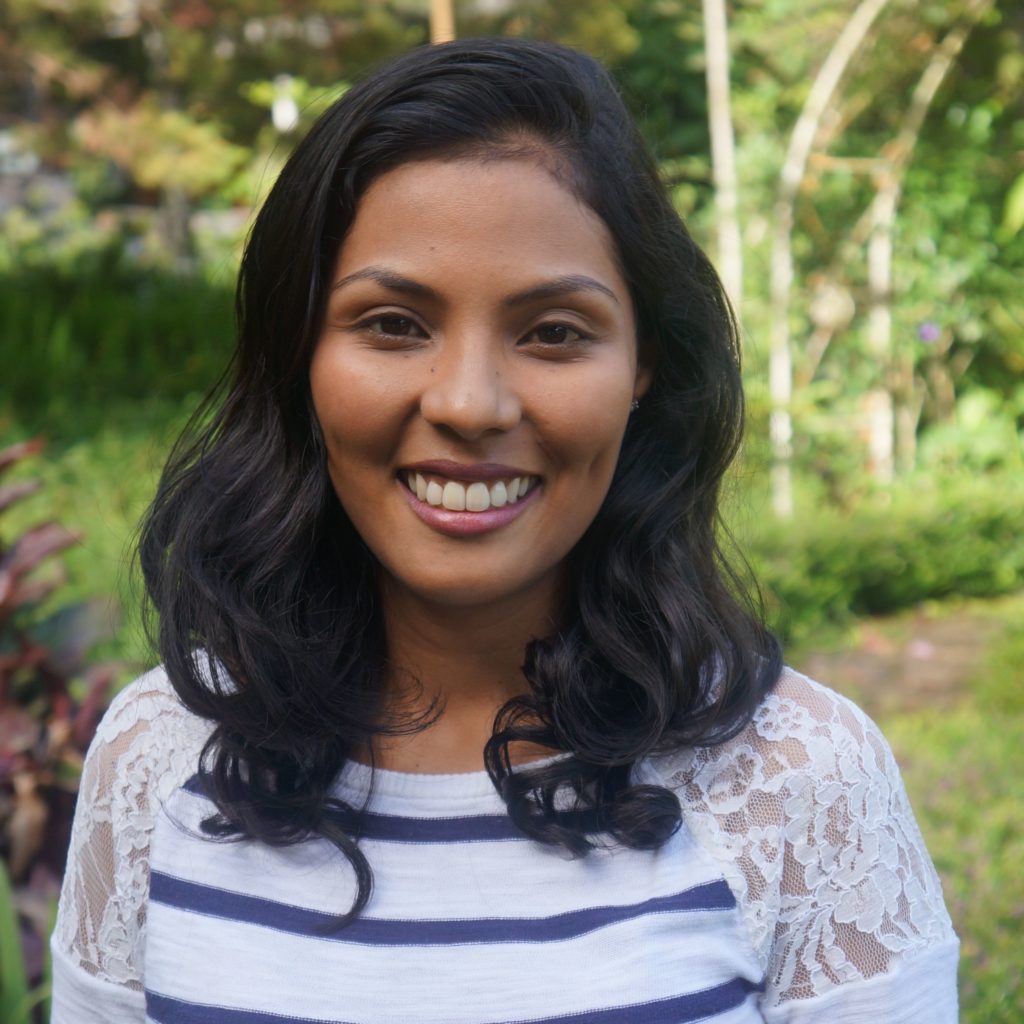
November 2, 2021
In the months following the emergence of the COVID-19 pandemic in 2020, TogetHER reached out to leaders in global cervical cancer control to discuss challenges and provide their perspectives on COVID-19’s immediate impact on programs to safeguard women’s health in low-resource settings. The full set of interviews represents a wide breadth of voices, from global multilaterals to community-based efforts.
The pandemic and the world’s response have evolved in the past year, from the release and inequitable distribution of COVID-19 vaccines, to the emergence of the Delta variant, to a number of rolling regional outbreaks. The past year has also seen the world commit to the global elimination of cervical cancer – the first-ever strategy to eliminate a cancer – and the release of new World Health Organization guidelines emphasizing HPV testing as the preferred method of screening.

TogetHER asked a select few participants in last year’s interviews to revisit the topic and provide perspectives on how their own work has changed in the last year. This installment of this retrospective series features The Lily Project’s Co-Founder and Executive Director, Anielka Medina.
Header and headshot photo credit: The Lily Project
Since this time last year (October 2020), what impact has the COVID-19 pandemic had on your programs, specifically cervical cancer prevention services (HPV vaccination, cervical screening, treatment or other follow up)?
As the virus once again ebbs in the US, it is important to understand it is still raging in Nicaragua and throughout Latin America (LATAM). It was recently reported that despite being only 10% of the global population, LATAM accounts for a quarter of COVID-19 deaths. The impact in Nicaragua is particularly severe due to a lack of access to the vaccine with still less than 5% of the population vaccinated, a fraying health care system, government denial, and severe poverty which precludes social distancing or basic prevention.
COVID-19 has also been devastating for The Lily Project: every teammate has lost a family member to COVID, and our Chief Medical Officer was killed by the virus early in the pandemic when forced to treat patients without adequate PPE. Despite this reality, The Lily Project has continued to innovate our direct services model to safely provide screening and treatment for vulnerable women in rural communities. Rather than hosting open health events which would typically draw over 100 women together from surrounding communities, The Lily Project now hosts small invitation-only events with scheduled appointments, primarily for women on our ”watch list.” This new approach has resulted in fewer screenings but a higher percentage of women receiving treatment or follow-up care.
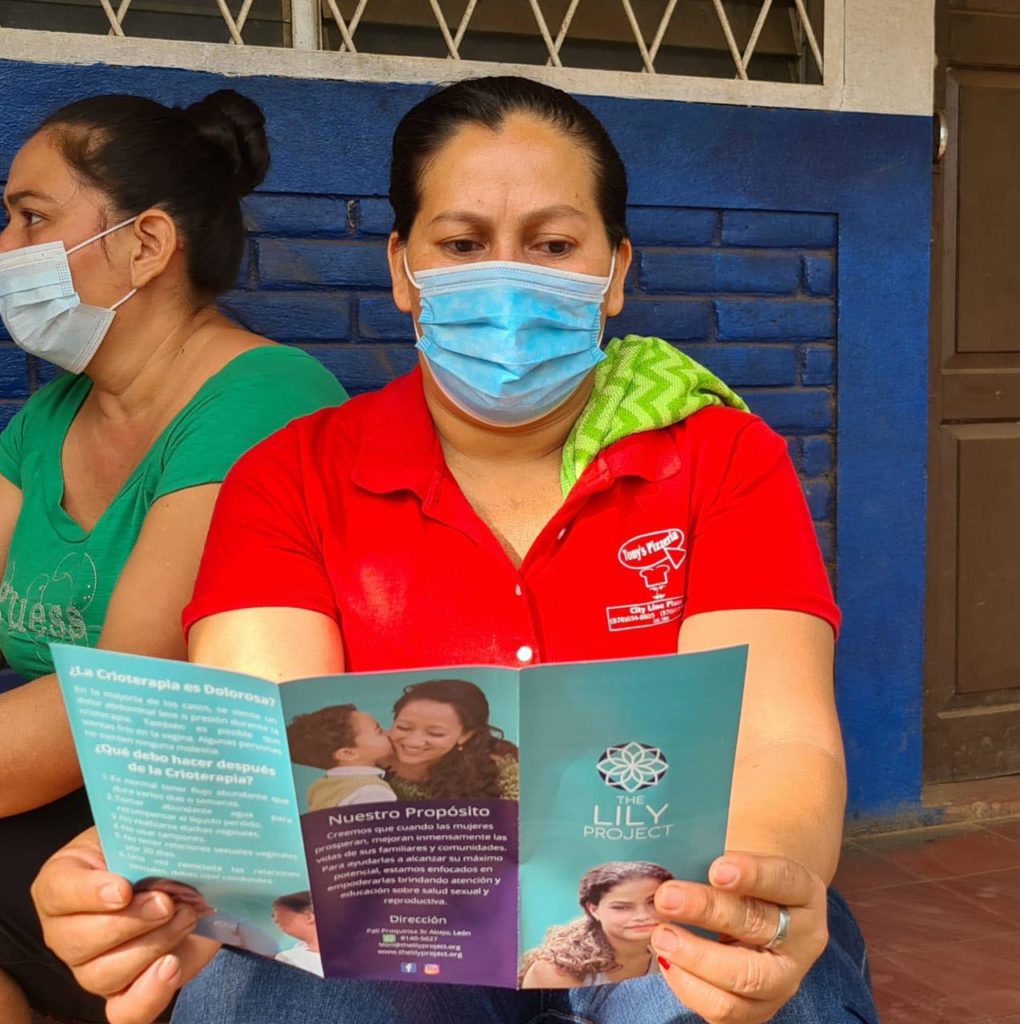
“The Lily Project has continued to innovate our direct services model to safely provide screening and treatment for vulnerable women in rural communities.”
Photo credit: The Lily Project

How have your programs evolved to sustain services and/or get them back on track as it has become clear that COVID-19 will continue to have an impact? Are there shifts you have made in programming that have actually resulted in greater impact?
The Lily Project’s direct services model includes sexual health education and cervical cancer care. I just described the changes we’ve made to our care model, but we have made even greater innovations on the education front with the development of a mobile health app that offers access to essential sex education, support and care to empower young women in Latin America to take control of their bodies, health and future.
We started with a proof of concept using Whatsapp to determine the feasibility of reaching and engaging women in their sexual health using digital technologies. This was a resounding YES and with the support of an amazing project team, we are now immersed in the development of minimum viable product with a goal to be market-testing the app by the end of the year. This app, designed for their unique technology behaviors, lower literacy, and reflecting culturally relevant sexual health needs of Latinas, will be first to market. You can learn more about it here: www.chava.app
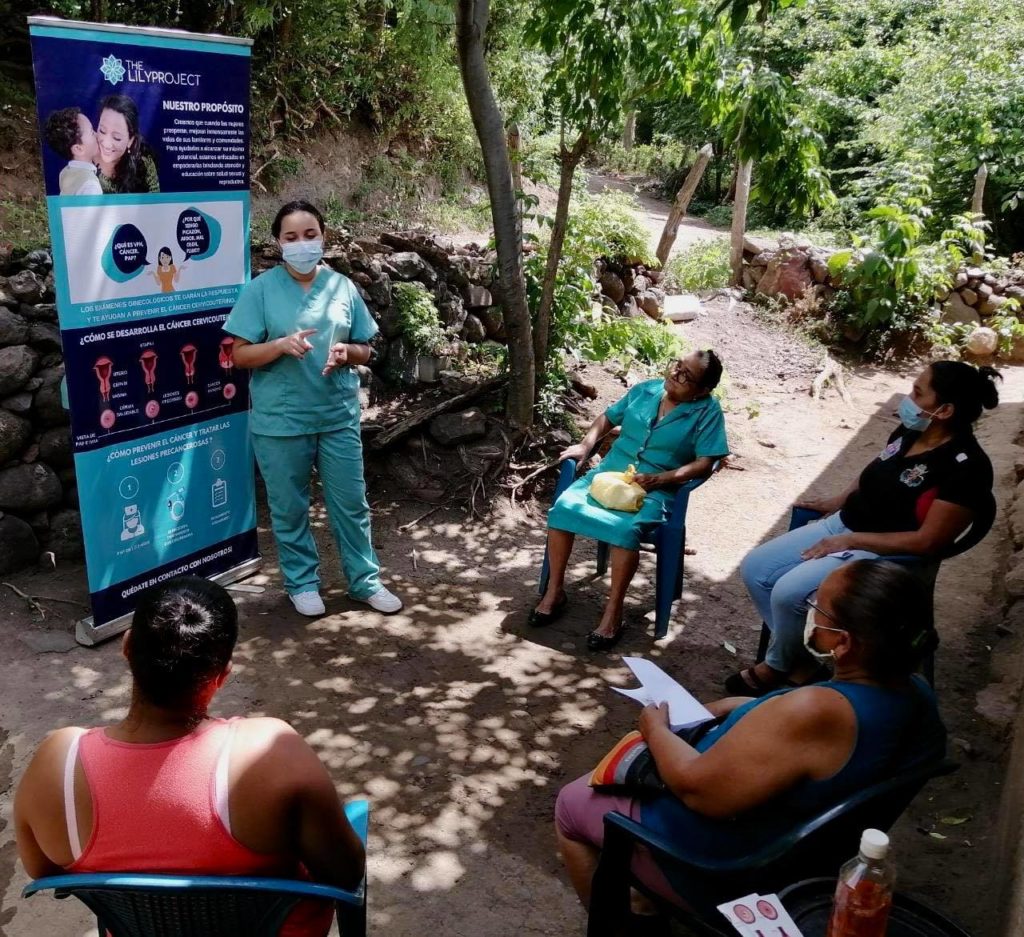
“The Lily Project now hosts small invitation-only events with scheduled appointments, primarily for women on our ”watch list.” This new approach has resulted in fewer screenings but a higher percentage of women receiving treatment or follow-up care.”
Photo credit: The Lily Project

What has the last year taught you about your work?
For one, we never thought we would learn how to develop an app! It has been great. Most importantly, we’ve become even more convinced that to eradicate cervical cancer we must empower young women to take control of the decisions they make about their bodies and sexual health.
Not only do women in Nicaragua experience high rates of cervical cancer, nearly 50% of The Lily Project’s clients have a child by age 17 and, tragically, 15% by age 15. Very few of these young mothers complete primary school; 97% do not work outside of the home. They and their children are more likely to experience poor health, poverty, abuse and social exclusion. This situation is similar in other Latin American countries: overall, LATAM has the second highest adolescent pregnancy rate in the world and is the only region where adolescent pregnancies are not decreasing. In this region, where 70% of girls do not receive basic sexual health education or care, we need to develop new ways for girls to learn, own and advocate for their sexual health and future.
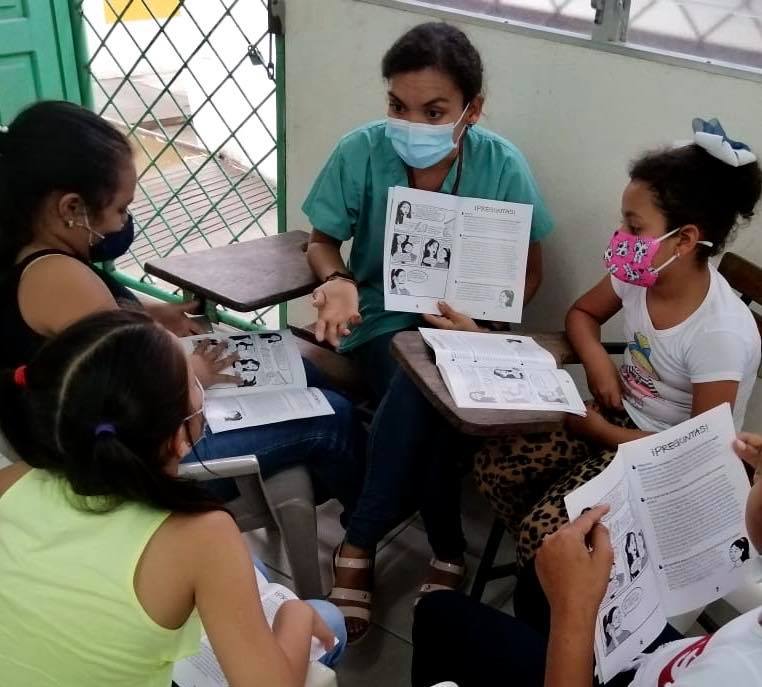
“We’ve become even more convinced that to eradicate cervical cancer we must empower young women to take control of the decisions they make about their bodies and sexual health.“
Photo credit: The Lily Project

What has kept you and your team motivated during the past year?
The Lily Project team is amazing! The culture of The Lily Project encourages what we call “creative resilience” or the ability to find new solutions and recover quickly from set-backs – and there have been many! I believe this is only possible because every person on the team in Nicaragua and in the US believes so strongly in our mission and has so much trust in each other. We are very excited both about launching CHAVA for girls in LATAM and continuing to provide these essential services to women in Nicaragua.
For more on the Lily Project’s cervical cancer prevention activities in Nicaragua, visit their website at www.thelilyproject.org as well as a recent TogetHER case study.

Anielka Medina is co-founder and Executive Director of The Lily Project in Nicaragua. Anielka created the project to protect women from cervical cancer, which killed her mother and is a leading cause of death of young women in her country. Anielka is a graduate from the Autonomous University of Nicaragua-Leon (UNAN), where she studied bioanalysis focused on cervical cancer detection. Anielka was trained and certified in VIA and cryotherapy by the foremost educators Dr. Sonia Cabeza & Dr. Alvaro Garcia at Bertha Calderon Hospital in Managua. She is currently responsible for the overall development and delivery of The Lily Project’s strategy in the most at-risk communities of Nicaragua.
